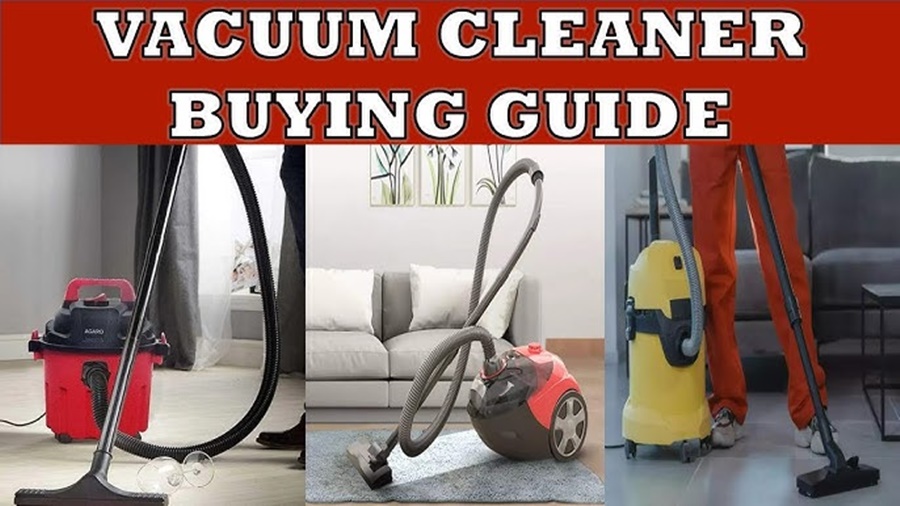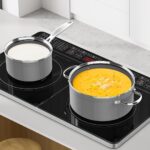Choosing the right vacuum cleaner can be overwhelming, especially for beginners. With a wide range of models, features, and specifications, it’s essential to understand which vacuum fits your cleaning needs, budget, and lifestyle. In this comprehensive guide, we break down everything you need to know to make an informed decision and select the best vacuum cleaner for your home.
Types of Vacuum Cleaners: Understanding Your Options
1. Upright Vacuums
Upright vacuum cleaners are a classic choice, ideal for homes with large carpeted areas. They offer powerful suction and typically come with rotating brush rolls that agitate carpet fibers to lift dirt effectively.
- Pros: Strong suction, easy to store, wide cleaning path
- Cons: Heavy, noisy, not ideal for tight spaces or stairs
2. Canister Vacuums
Canister vacuums separate the motor and suction head, offering better maneuverability and versatility. They perform exceptionally well on hard floors, stairs, and under furniture.
- Pros: Lightweight wand, versatile attachments, quiet operation
- Cons: Bulky storage, requires two-hand operation
3. Stick Vacuums
Stick vacuums are slim, lightweight, and often cordless. Perfect for quick cleanups and small apartments, they may not offer the power of full-sized vacuums.
- Pros: Easy to use, portable, ideal for quick jobs
- Cons: Short battery life, less suction power
4. Robot Vacuums
Robot vacuums clean autonomously, making them perfect for maintaining cleanliness in between deep cleaning sessions. Smart features like scheduling and app control add convenience.
- Pros: Hands-free operation, ideal for daily maintenance
- Cons: Expensive, limited deep-cleaning power
5. Handheld Vacuums
Handheld vacuums are compact and convenient for small messes, car interiors, and furniture.
- Pros: Lightweight, portable, easy to store
- Cons: Limited suction, short battery life
Key Features to Look for in a Vacuum Cleaner
1. Suction Power
Measured in Air Watts (AW), suction power determines how effectively a vacuum can pick up dirt and debris. Look for a vacuum with at least 100 AW for general household use.
2. Filtration System
A high-quality vacuum should have a HEPA filter (High-Efficiency Particulate Air) that captures 99.97% of dust, pollen, and allergens. This is essential for households with allergy sufferers or pets.
3. Bagged vs. Bagless
- Bagged Vacuums: Better for allergy control; dust stays contained.
- Bagless Vacuums: More economical; no need to buy replacement bags but can release dust during emptying.
4. Corded vs. Cordless
- Corded Vacuums: Provide continuous power and are suitable for large cleaning sessions.
- Cordless Vacuums: Offer flexibility and convenience, but battery life can be a limitation.
5. Weight and Maneuverability
Choose a lightweight model if you need to carry the vacuum between floors or use it frequently. Swivel steering and ergonomic handles improve maneuverability.
6. Noise Levels
Measured in decibels (dB), most vacuums operate between 65–80 dB. Quieter models are preferable for apartments or households with young children.
Vacuum Cleaners for Different Floor Types
Carpeted Floors
Opt for vacuums with adjustable brush rolls and strong suction. Upright vacuums with motorized heads are ideal.
Hardwood and Tile
Use vacuums with soft rubber wheels and a brush roll that can be turned off to prevent scratching. Canister or stick vacuums are often more suitable.
Mixed Flooring
Choose a model with automatic floor type detection or manual brush height adjustment for seamless transitions between carpets and hard floors.
Special Considerations for Pet Owners
Pet hair and dander can be particularly challenging. Look for vacuums with:
- Powerful suction and motorized brush rolls
- Tangle-free brush designs
- Specialized pet hair attachments
- HEPA filters to trap allergens
Brands like Dyson, Shark, and Bissell offer pet-specific vacuum models engineered for fur and dander removal.
Maintenance and Durability
To ensure long-term performance, consider vacuums that are:
- Easy to clean and disassemble
- Have washable filters and dust bins
- Backed by a solid warranty (minimum of 2 years)
Check if replacement parts such as belts, filters, and brushes are readily available.
Top Brands to Consider
Here are some reliable vacuum cleaner brands known for their performance and durability:
- Dyson: Advanced technology, powerful suction, high-end design
- Shark: Affordable, versatile, great for pet hair
- Miele: Premium canister vacuums, exceptional filtration
- Bissell: Budget-friendly, pet-oriented models
- Hoover: Trusted brand with a wide variety of models
Budget Considerations: What Should You Expect to Pay?
Entry-Level Models ($50–$150)
Great for small spaces and light-duty tasks. Commonly stick or handheld vacuums.
Mid-Range Models ($150–$350)
Ideal for most homes. Offer a balance of power, features, and reliability.
High-End Models ($400+)
Feature-rich vacuums with strong suction, HEPA filters, and smart technology. Suitable for large homes and deep cleaning.
Smart Features and Technology
Modern vacuums now include Wi-Fi connectivity, voice control, and app-based scheduling. While not essential, these features can enhance convenience and improve cleaning routines, especially in robot vacuums.
Look for:
- Smart Mapping and obstacle detection
- Auto-empty bins (robot vacuums)
- Digital displays with maintenance reminders
Eco-Friendly and Energy Efficient Choices
If sustainability matters, choose models that are:
- Energy Star certified
- Designed for minimal energy consumption
- Use reusable filters and washable dustbins
Cordless models using long-life lithium batteries are often more energy efficient and environmentally conscious.
Final Checklist Before You Buy
- Determine your floor types and specific cleaning needs
- Set your budget and choose the right type accordingly
- Prioritize suction power and filtration
- Evaluate weight, size, and ease of storage
- Read customer reviews and check warranty details
Conclusion
Choosing the right vacuum cleaner doesn’t need to be complicated. By understanding the types, features, and specific needs of your home, you can invest in a vacuum that will serve you efficiently for years. Whether you’re battling pet hair, dust allergies, or everyday dirt, the perfect vacuum is out there — and now, you’re fully equipped to find it.








Leave a Reply